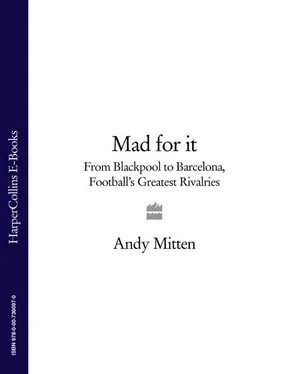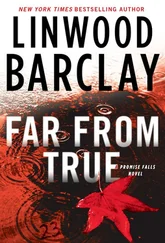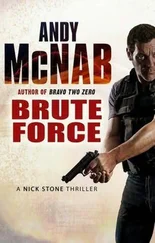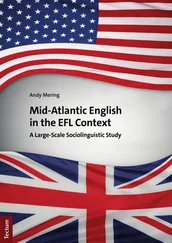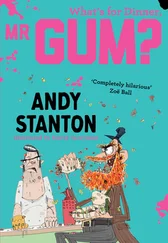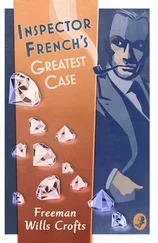Twenty-one years later, I’m sitting opposite the Newcastle manager Kevin Keegan, who has just seen his side win the Tyne–Wear derby against rivals Sunderland. The vanquished visiting manager Roy Keane has just faced the press, but he doesn’t go for the sentimental, populist, touch. Unlike King Kev.
‘You don’t get an atmosphere like that anywhere else in the world,’ he says proudly. ‘You can go round the world twice and you won’t get that. Not in Liverpool, the Nepstadion, Budapest, the Maracana or at Boca Juniors. The derby match up here is very, very special.’
He’s playing the role of local hero well, but part of me wants to disagree. That’s because I’d been travelling to derby games around Europe for FourFourTwo magazine and this book for six years. I’d seen derbies where the atmosphere far exceeded that of the Tyne–Wear contest. I’d watched Corinthians play Sao Paulo in the Maracana and wanted to assure Keegan that the atmosphere was far more intense than St James’ Park. But I was there to listen, not speak.
Paulo Di Canio, who has played in five derbies, has his own candidates. ‘The Juventus–Torino rivalry has deep historical roots, while the Milan derby, Inter verses AC Milan, is probably the best in the world in terms of evenly-matched sides and sheer quality on the pitch,’ says Di Canio. ‘At West Ham, we played four or five local derbies a year, so perhaps it’s less of an event, but you knew when we played Arsenal, Chelsea or Spurs that we were totally fired up.’
Di Canio was adamant which two derbies stood out. ‘Apart from the Old Firm (Glasgow) which is far and away the biggest rivalry in all of sport, nothing compares to the Rome derby (between his former club Lazio and Roma). People begin talking about it six weeks in advance, the preparations being made with weeks to spare. The build up is huge, nothing else matters. Roma and Lazio fans care more about winning the derby than where they finish in the league.’
Di Canio, a one time Lazio Ultra, progressed from terrace to pitch, where he scored in the Rome derby. It’s a major reason why he is still revered today by the fans he once stood alongside.
Sir Alex Ferguson, though, begs to differ. ‘I have been to derby games all over the world…in Milan, Madrid, Rome, Liverpool and in London, plus, of course, from my old playing days I know all about the fierce rivalry between Rangers and Celtic. However it’s our fixtures against Liverpool that get my pulse racing and they are the games I look forward to more than any others. I regard our fixtures with Liverpool as more of a derby than our all-Manchester matches against City.’
Opinions differ widely on which derbies have the most meaning for supporters. Ask Blackpool fans and they’ll tell you that there is no game like when they meet Preston, just as I thought that my local Irlam v Urmston was a game of the utmost importance all those years ago.
Despite often loathing their enemies, fans talk proudly of their derby game – often because their appreciation of its importance is so subjective. While a trophy haul is tangible, the atmosphere at a game isn’t. Scientists don’t measure the noise levels and record the flag displays at games, leaving their impact and size open to exaggeration and debate. Fans of Barca and Madrid consider their clash to be the biggest in the world, yet fans at much smaller derby games deem ‘their’ derby much more authentic because it is more parochial and intense. ‘How can a Madrid player from South America possibly hate Barcelona with the same intensity as a Wrexham born player hates Chester?’ one Wrexham fan told me. ‘We’ve seen the posh tennis playing twats take our girls and our jobs. We’ve got genuine reasons to hate them.’
So while Cristiano Ronaldo may be a superior athlete to any player plying his trade in the Israeli league, Manchester United’s fans are not necessarily superior beings. Derbies give the fans of Hapoel Tel Aviv and Maccabi Tel Aviv a chance to demonstrate that they are more committed, more loyal because of the colour, noise and fervour they generate.
‘We are not as big as some of the European clubs,’ one Hapoel devotee told me in a bar next to Tel Aviv’s frequently bombed bus station, ‘but we have a much tighter and better organised fan culture. We are better fans and we demonstrate that against [our main rivals] Maccabi.’
Geography, history, sectarianism, class, religion and economics each play their part in shaping the unique nature of derby matches. Nor is there only one type of derby. The term needs some clarification, as it is used to widely different types of rivalries. Some wrongly assume that a derby was originally a cross-city match, the term originating in the East Midlands city of Derby, yet Derby County haven’t played a true derby since 1891 when they merged with the city’s only other major team, Derby Midland.
Derby fans consider the fixture with Nottingham Forest, who are based 15 miles away, their biggest game. And while Forest have their own cross-city derby with Notts County, they consider the game against Derby to be their main, well, derby.
The origins of the word ‘derby’ are derived from the horse race known as the Derby Stakes, which was first run in 1780 and named after Edward Stanley, the 12th Earl of Derby. It became established as the high point of the racing season as part of the meeting at Epsom in Surrey in early June. Such was its importance, other classic races were named after it, such as the Kentucky Derby.
Derby day, the day of the race – always a Wednesday until recently – became a hugely popular event, not just for the toffs but as a big day out for all Londoners, a public holiday in all but name. Great numbers of people drove or took the train down to Epsom, making a day of it with picnics and lots to drink. In 1906, George R. Sims wrote: ‘With the arrival of Derby Day we have touched the greatest day of all in London; it may almost be said to be the Londoners’ greatest holiday – their outing or saturnalia.’
Around the time George Sims was writing, the word moved into more general use to describe any highly popular and well-attended event. In particular, it came to be applied to a fixture between two local sides, first called a local Derby and then abbreviated. But it is used to describe football games between teams which may be situated far further apart, regional rather than local rivals.
The 28 games featured here are by no means definitive, but they are chosen because they demonstrate the incredible diversity of derbies, as well as the common elements they share. The Faroes was the only place on my travels where I was unable to find a fan with a bad word about their rivals, for instance. In Glasgow, it wasn’t difficult.
Some games are omitted because we only wanted each team to feature once. The cross-city derbies in Madrid and Barcelona are fascinating, but they don’t compare to the Barca–Madrid game.
I tried to spend at least 48 hours in a city to write a feature. It irritated me as a Mancunian and United fan when writers were parachuted into Manchester for the day and returned to write lazy features full of stereotypes, which often missed the point. And while I spoke to the usual suspects like players and local journalists, I tried to talk to as many fans as possible. Fans often have a far greater feeling for a rivalry than any player could have. Because of my background editing the United We Stand fanzine, I’ve always felt comfortable around fans and understand the nuances and hierarchy of fan culture. When I went to Anfield or Ajax Amsterdam, I didn’t do what television cameras tend to do and collar the fan desperate to perform for the cameras for his or her opinion.
Instead I sought out the views of the most hard-core supporters. Sometimes they were hooligans; sometimes they were old men who hadn’t missed a game for half a century. But they were always people who cared deeply about their club.
Читать дальше
